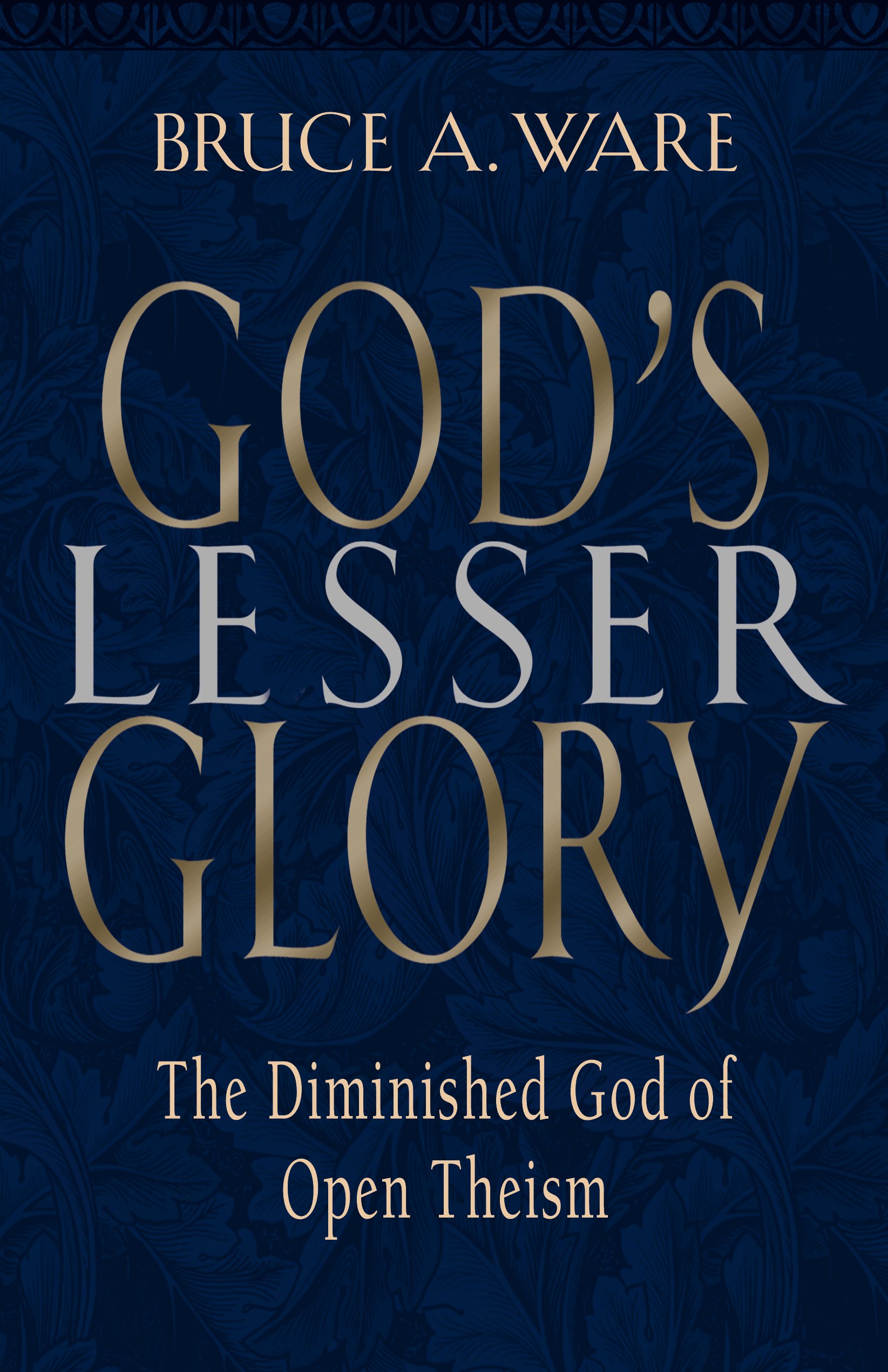A Brief Book Summary from Books At a Glance
By Benjamin Montoya
About the Author
Bruce A. Ware (Ph.D., Fuller Theological Seminary) is professor of Christian theology at The Southern Baptist Theological Seminary. He has written numerous journal articles, book chapters, book reviews, and has authored God’s Lesser Glory and Father, Son, and Holy Spirit.
Table of Contents
Preface
Foreword
Introduction Chapter 1 Why You Should Be Concerned
Part One What Does Open Theism Propose? Examining God’s Lesser Glory
Chapter 2 The Perceived Inadequacy of the Classical Arminian View of God
Chapter 3 The Perceived Benefits of Open Theism
Part Two What’s Wrong with Open Theism’s View of God? Assessing God’s Lesser Glory
Chapter 4 Assessing Open Theism’s Denial of Exhaustive Divine Foreknowledge
Chapter 5 Scriptural Affirmation of Exhaustive Divine Foreknowledge
Chapter 6 The God Who Risks and the Assault on God’s Wisdom
Part Three What Difference Does It Make in Daily Life? Expressing God’s Lesser Glory
Chapter 7 Harm to the Christian’s Life of Prayer
Chapter 8 Weakening of Our Confidence in God’s Guidance
Chapter 9 Despair amid Suffering and Pain
Conclusion Chapter 10 God’s Greater Glory and Our Everlasting Good
In This Summary, You Will Learn:
- What open theism is and what it teaches
- Why this doctrinal issue matters for our theological-thinking
- How this doctrinal discussion is relevant for our lives
- How open theism is unbiblical
- How Scripture presents God as knowing the past, present, and future
- How God is in control over all things
The Contribution of This Book:
Bruce Ware’s God’s Lesser Glory was perhaps the first thorough refutation of the proposal of open theism. He explains and assesses it in light of Scripture, theology, and history. He shows how this position is untenable for Christians. Similarly, he also shows why every Christian should care about this issue. On the surface, it may seem like an academic debate. But, as Ware digs beneath the surface, he shows how this issue matters for us all. God’s glory matters, and how we think of it will affect how we live.
Introduction
Chapter 1: Why You Should Be Concerned
Perhaps most Christians have never heard the term “open theism.” Why, then, should they care about a book that is written against it? That is, might this issue just be a squabble among academics that has no real bearing on our lives? This issue, however, is not that; it is something that every Christian should be concerned about. Open theism is an issue that has arisen as a way to explain God’s foreknowledge. Clearly, we do not know the future; if we did, we would probably all have won the lottery by now. But, does God know it? Does He know even when evil things will happen?
Open theists argue that God’s knowledge of the future, or foreknowledge, is limited like ours. He is just as surprised as we are when bad things happen. They make this argument on biblical, philosophical, and practical grounds. First, they claim that although God sometimes knows what will happen in the future, He does not generally know what will happen in the future. Second, philosophically, they claim that true human freedom is possible only if the future is truly open, even to God. Third, practically, they claim that if God knows our thoughts, feelings, and actions in advance, then we do not have a real relationship with him. This view, then, claims that it makes the doctrine of God more compatible with human freedom and the Christian life more meaningful. This view, however, is problematic.
First, it diminishes the glory of God by limiting His foreknowledge. Scripture presents God as someone who knows and can predict the future. Second, this argument creates problems for the Christian life. If God is really not in control and knows the future, then the Christian has no reason to have confidence that God can act on their behalf. The rest of this book will flesh out these and other problems with this position. The larger purpose of this book is that God’s foreknowledge will not be lessened such that we will know the true God of Scripture rather than the lesser picture of him from open theism. But, before critiquing the position further, we need to understand where it comes from, and for that, we will turn our attention to chapter 2.
Part One: What Does Open Theism Propose? Examining God’s Lesser Glory
Chapter 2: The Perceived Inadequacy of the Classical Arminian View of God
Open theism is the child of Arminianism, or the logic of Arminianism pushed to its end. Arminians believe in libertarian freedom that is free from everything, even God’s control. Thus, the future is unknowable. Some Arminians still believe God is in control of the future, but He does not control freewill. Open theists, unsatisfied with this position, take it one step further. They argue that God does not know the future. They claim that God knows the eternal past and now, but the future is open. They believe in simple foreknowledge, that God accepts what free creatures will do, but He is not in a position to use that knowledge in any way.
In response, some have argued that God has a middle knowledge of what could happen in a variety of situations, like a chess player anticipating the moves of his opponent. Bruce Ware takes this position, though from a Calvinistic perspective. Open theism, however, is not satisfied with that response either because. . .
[To continue reading this summary, please see below....]The remainder of this article is premium content. Become a member to continue reading.
Already have an account? Sign In
